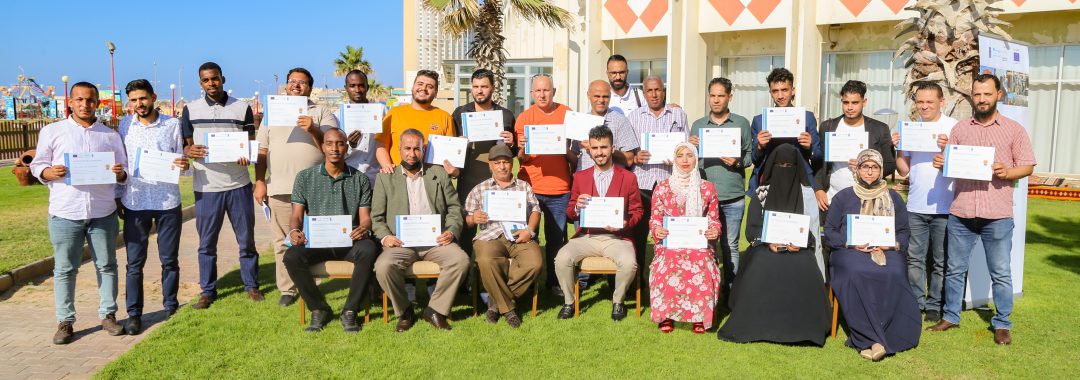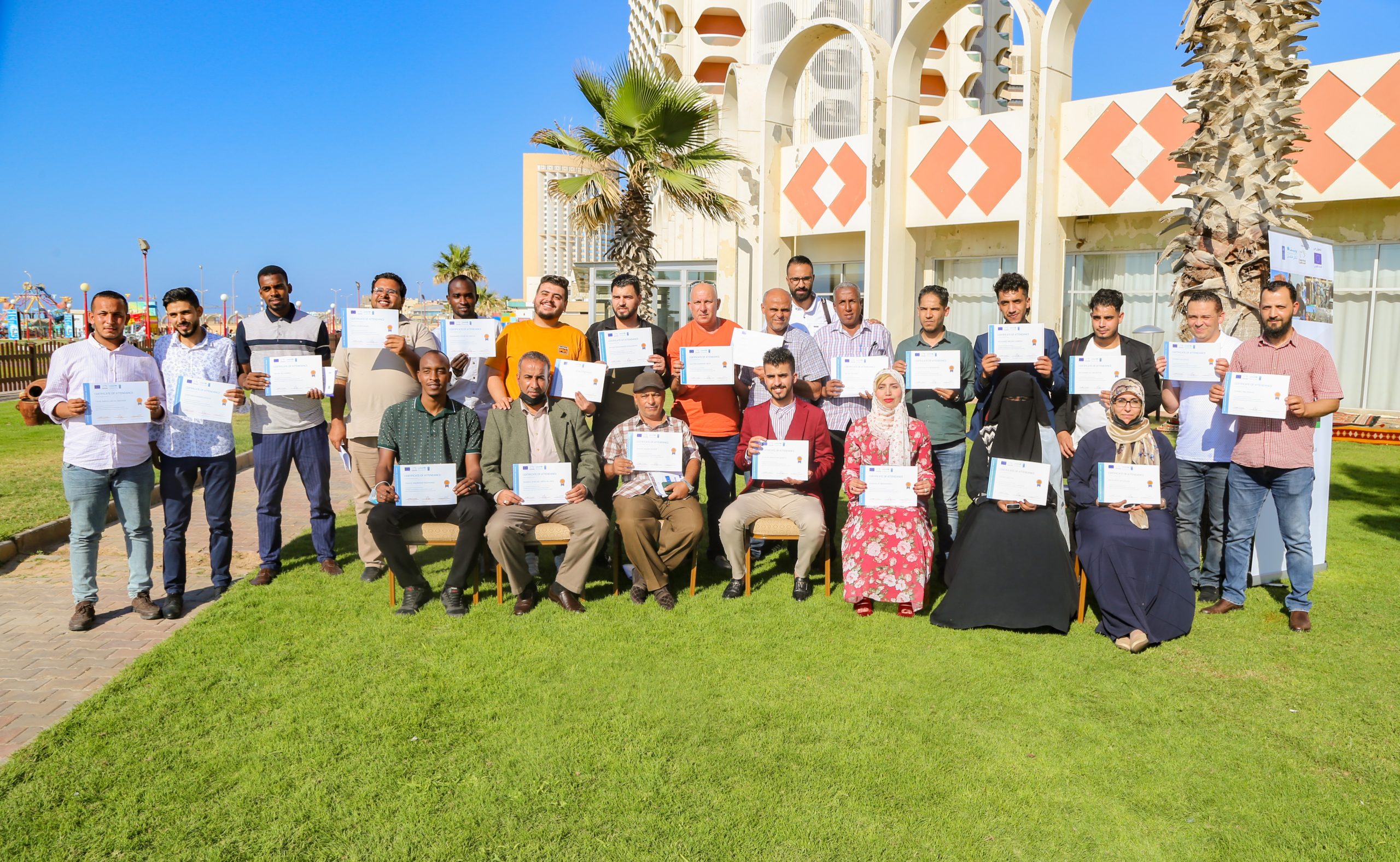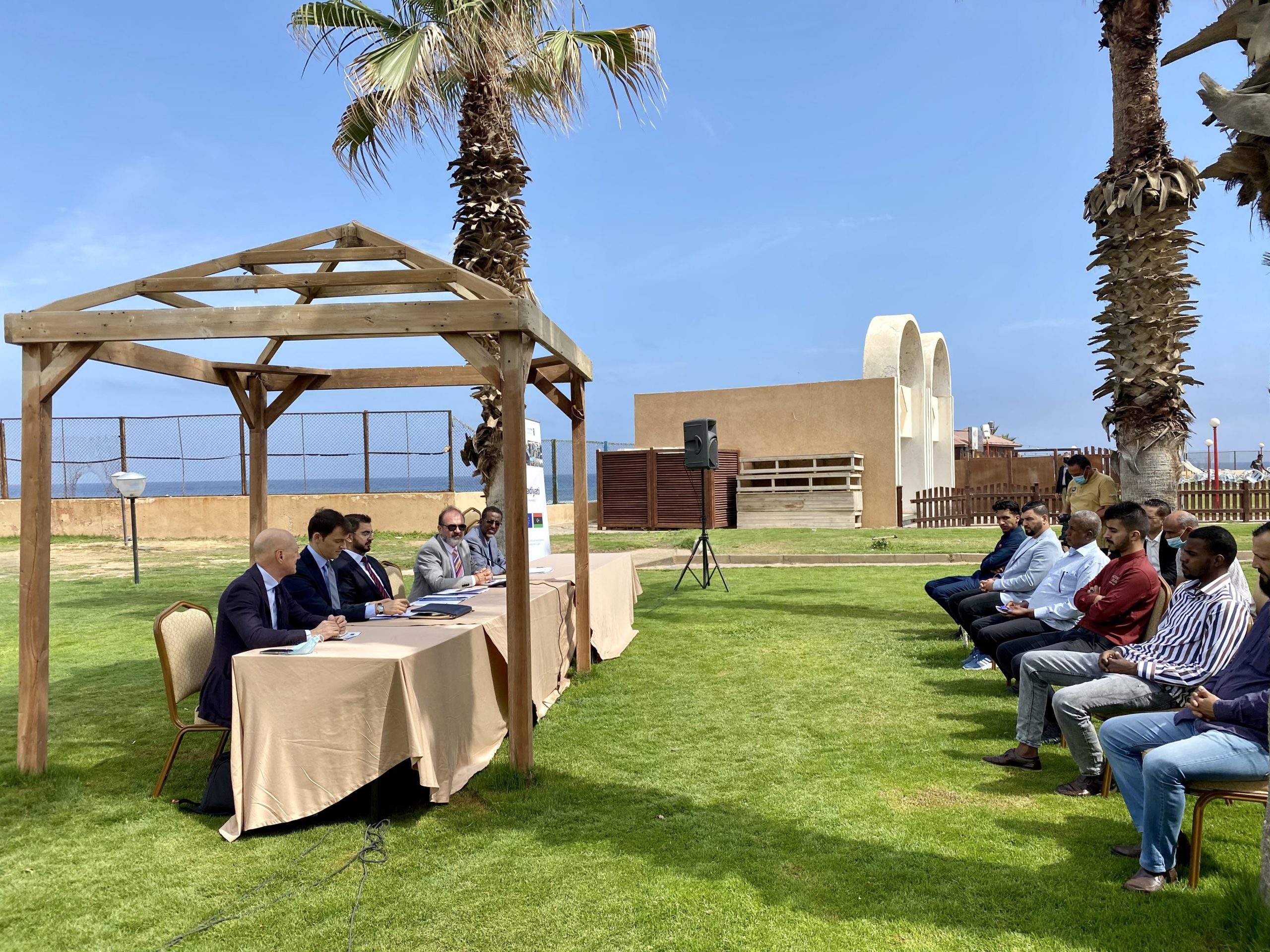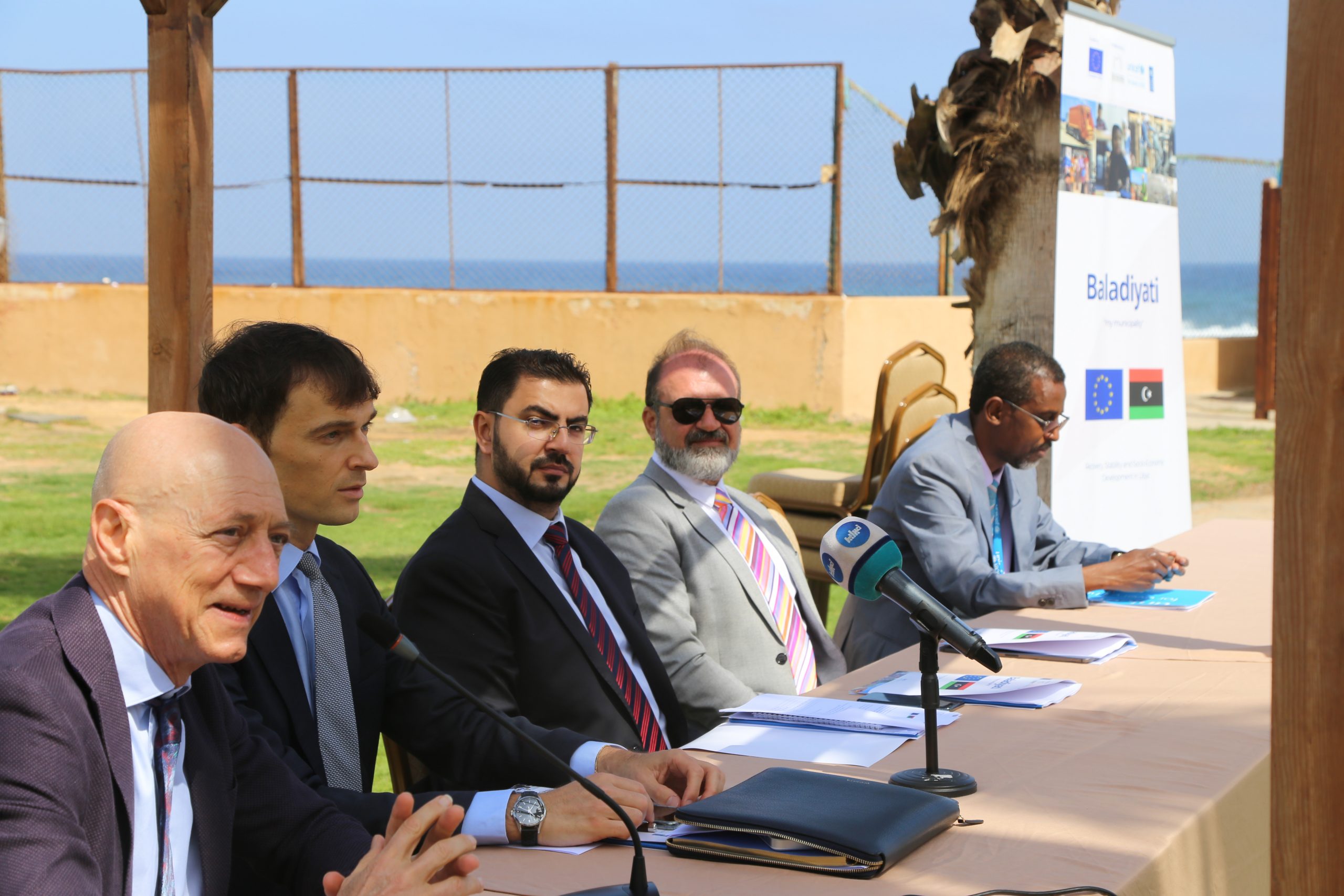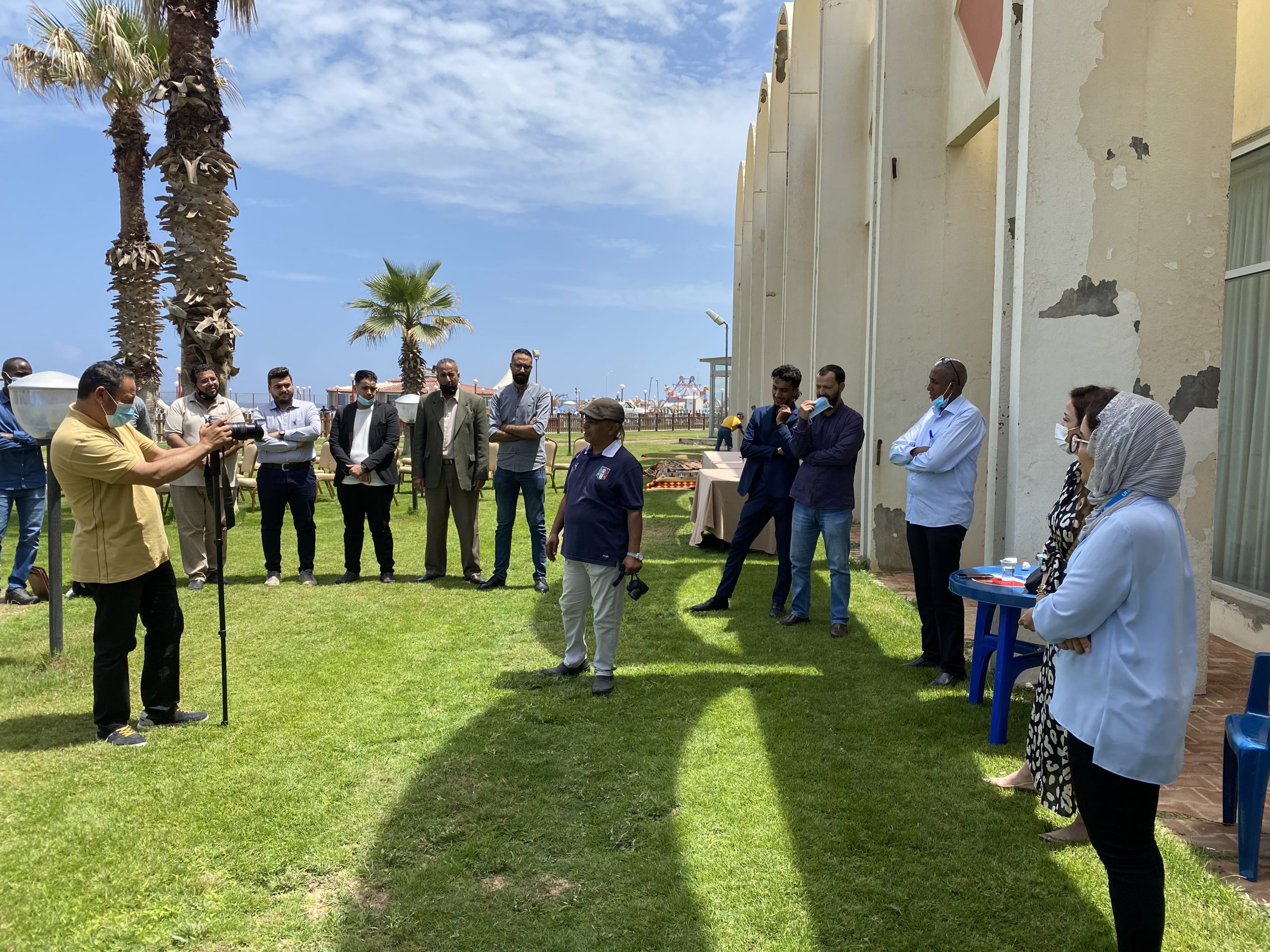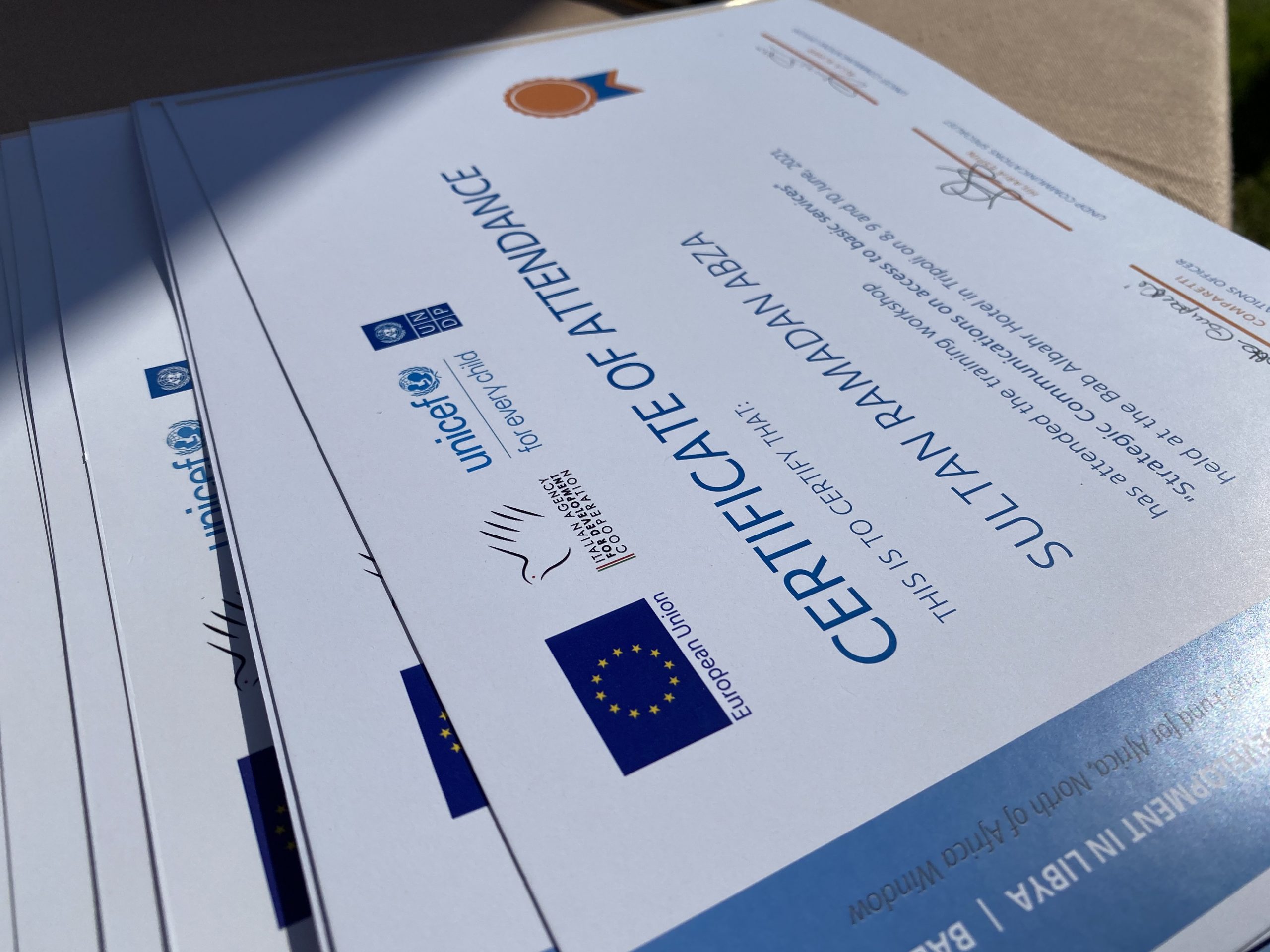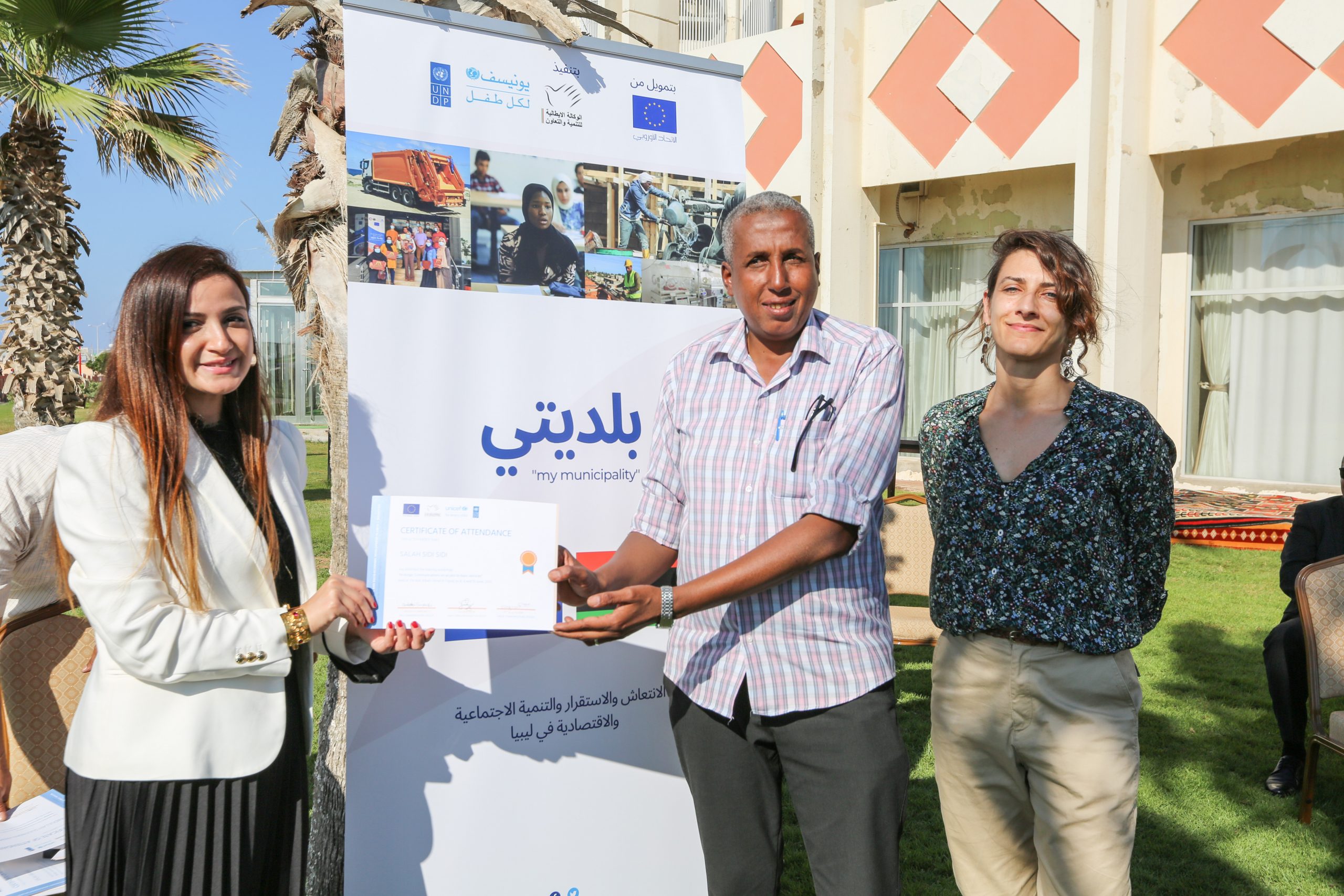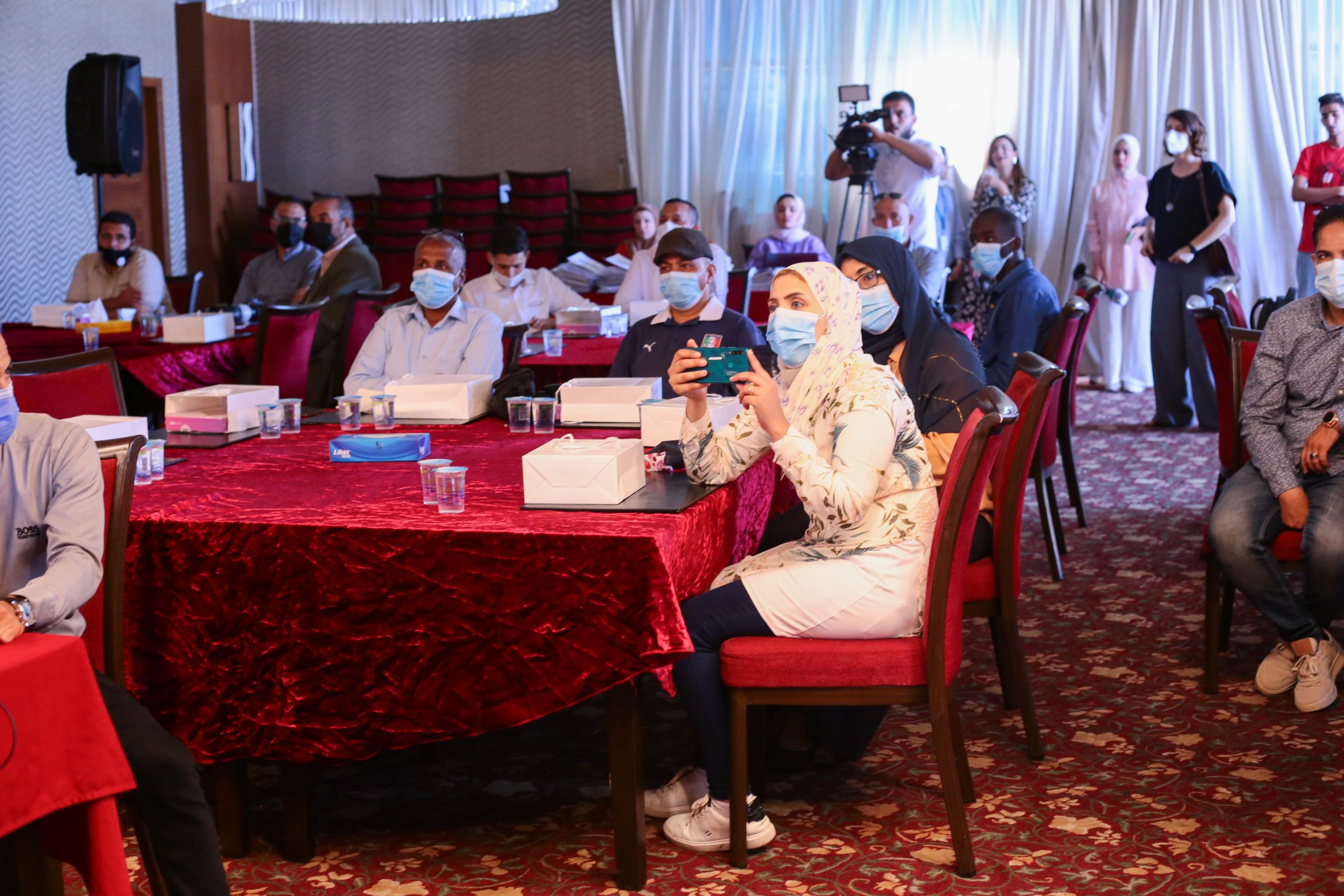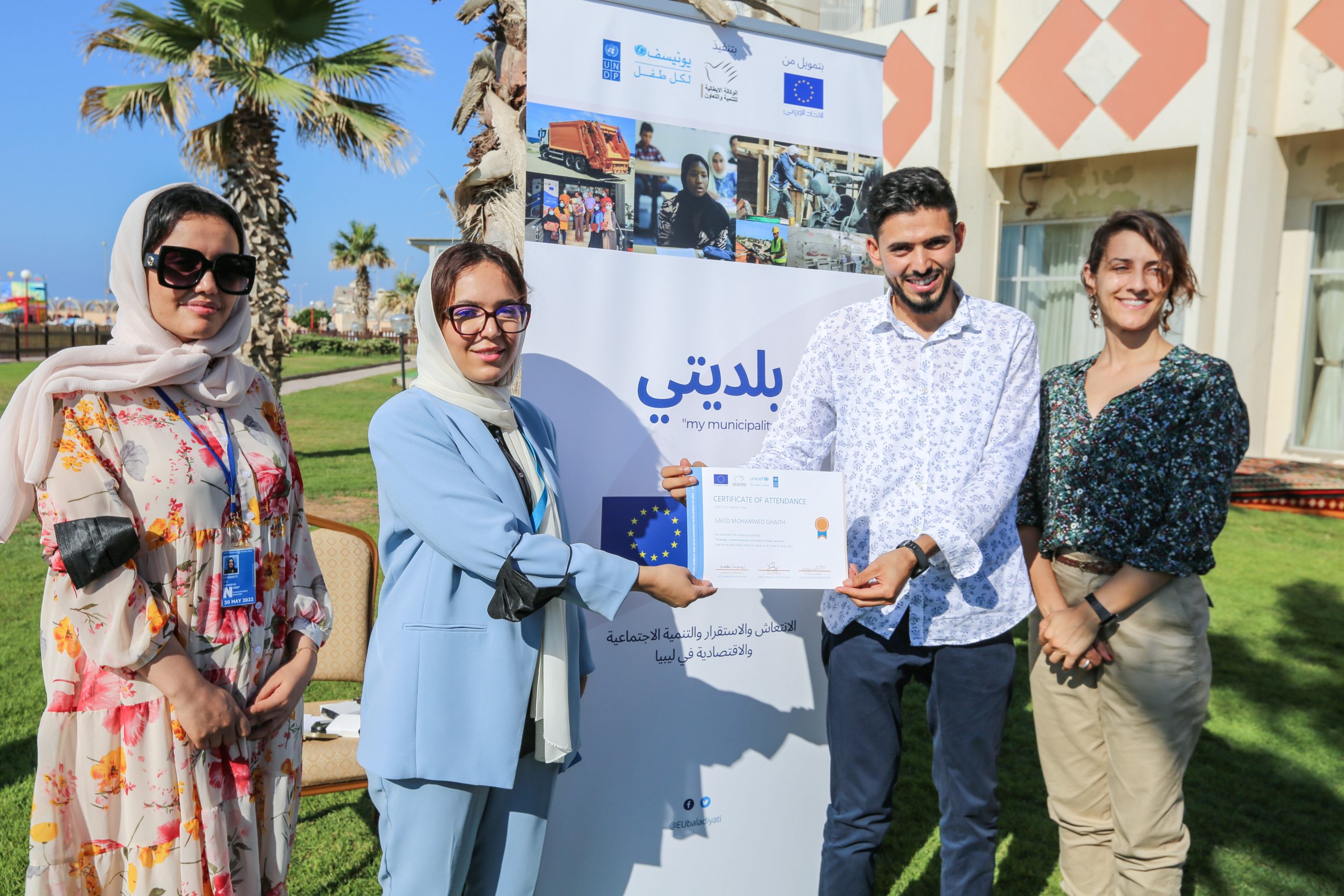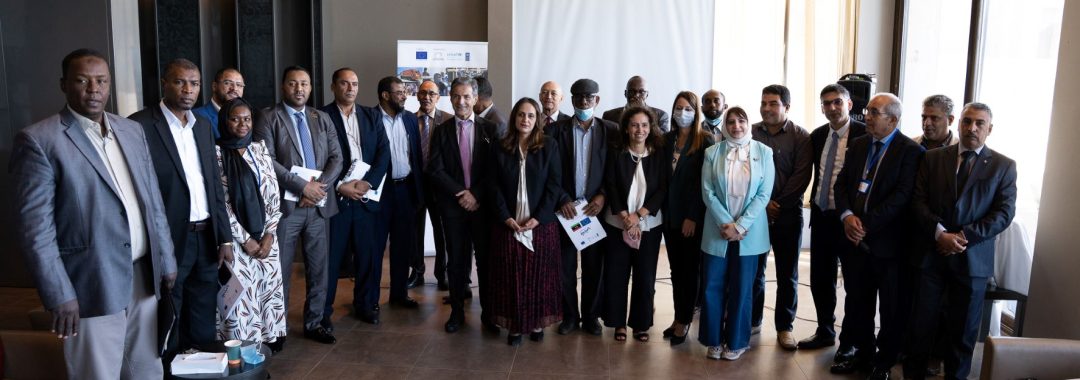by Carlotta Comparetti
Between 8-10 June, communication experts from 27 municipalities in Libya came together in a three-day seminar on strategic communications, designed to improve local communities’ access to crucial information on public services.
The workshop has been organised as part of the “Baladiyati” (“My Municipality”) programme, funded by the European Union through the EU Trust Fund for Africa and jointly implemented by the Italian Agency for Development Cooperation, UNDP and UNICEF in cooperation with the Libyan Ministry of Local Governance.
Mr. Mohamed Abo Helqa, International Cooperation Advisor to the Minister of Local Governance, emphasized the role of communications as the bridge between the local communities and the municipal councils and decision-makers, describing the workshop as a significant step forward in supporting municipalities and their challenges towards quality public services.
Mr. Andrea Senatori, Head of the AICS Regional Office for Libya, Tunisia, Morocco and Algeria, renewed the commitment of the Italian Cooperation in support of Libyan municipalities and said: “We are very happy to offer our support to the Libyan Press Officers, who are responsible for documenting and sharing critical information about key services, which municipalities provide to their local communities. We trust that effective information and communication systems with and within the communities are key to improved access to those public services likely to change the quality of life in the municipalities.”
The event was endorsed by the Embassy of Italy in Libya. The Deputy Head of Mission, Mr. Walter Di Martino, who attended the opening ceremony, said: “Building upon the long-lasting collaboration with the Ministry of Local Governance, Italy is committed towards a comprehensive set of initiatives for the benefit of all populations in the country, contributing to improved social services, a fruitful liaison between the Libyan and the Italian local administrations and sectorial projects with a focus on agriculture.”
About the Baladiyati programme
The EU’s Baladiyati “Recovery, Stability and Socio-economic Development Programme” (50 million euros) is the largest programme ever financed by the European Union in direct support of Libyan municipalities and of some of the most vulnerable communities in the country. It currently works with 27 municipalities across Libya with the aim to improve people’s access to quality public services, such as education, health, water and sanitation. The programme also aims at improving living conditions and building resilience among vulnerable populations, including host communities and migrants, refugees, returnees and internally displaced people (IDPs). The “Recovery, Stability and Socio-economic Development in Libya” programme is financed by the European Union through the EU Emergency Trust Fund for Africa (EUTF), and is implemented by the Italian Agency for Development Cooperation (AICS), UNDP and UNICEF.

